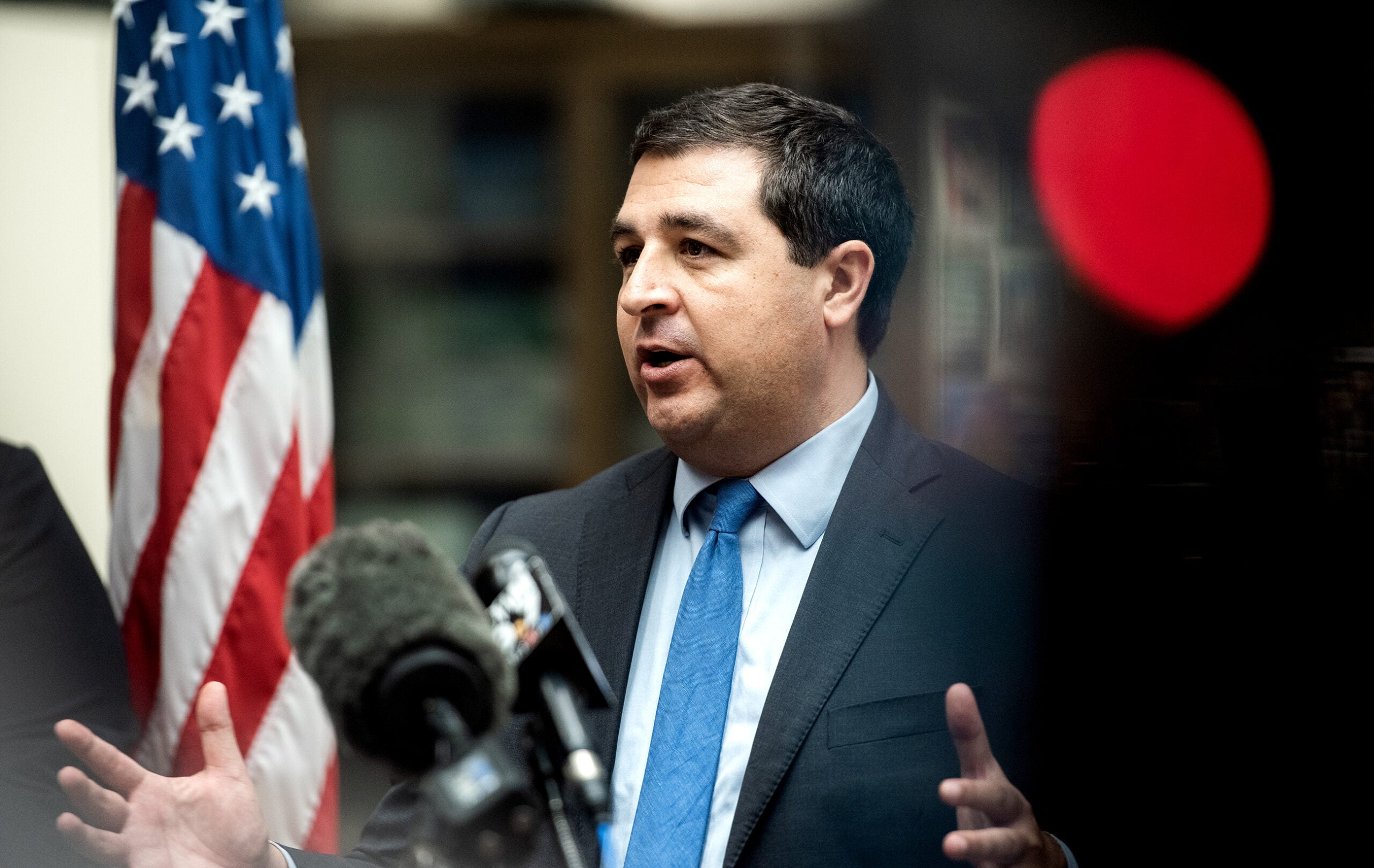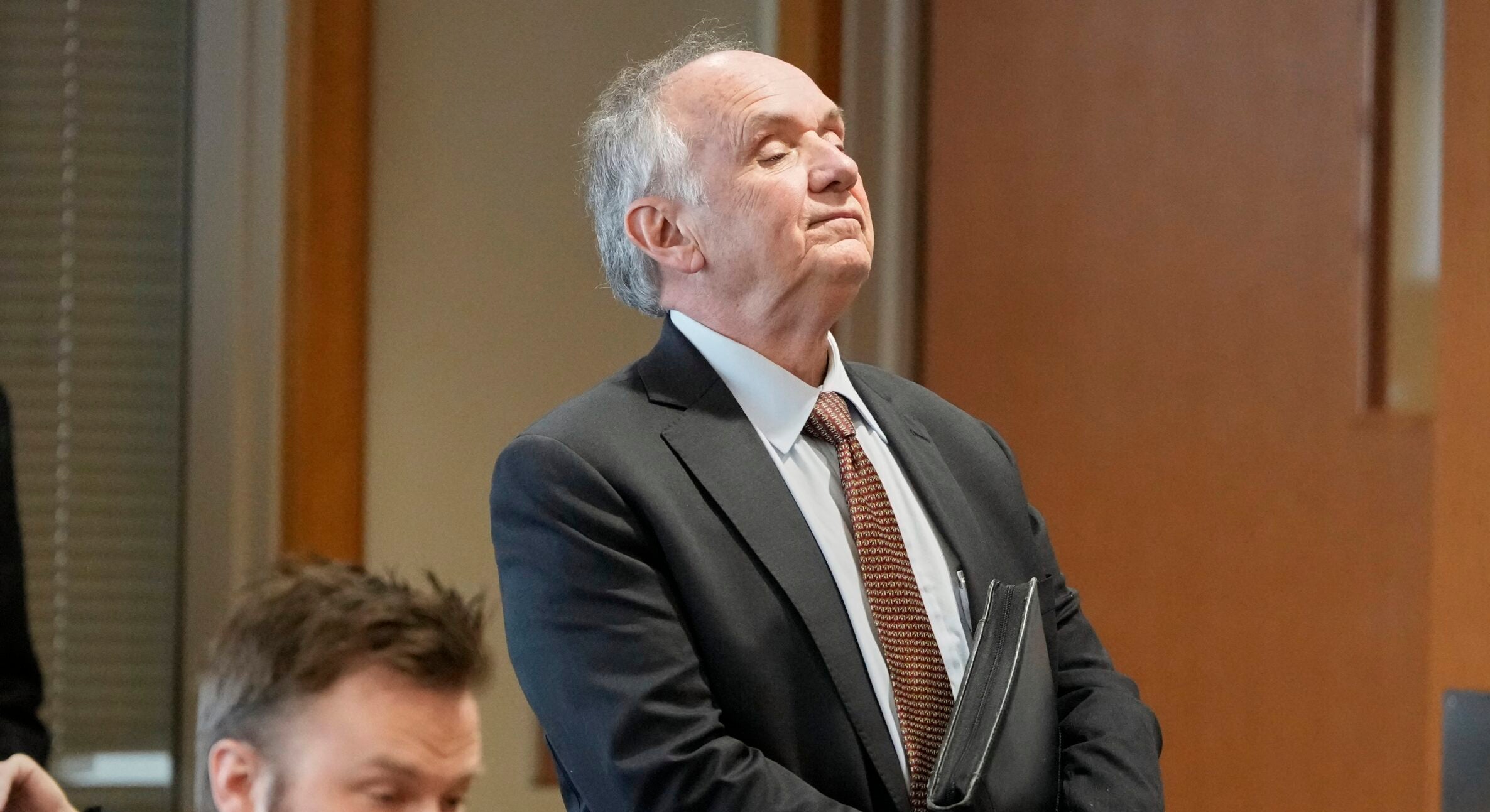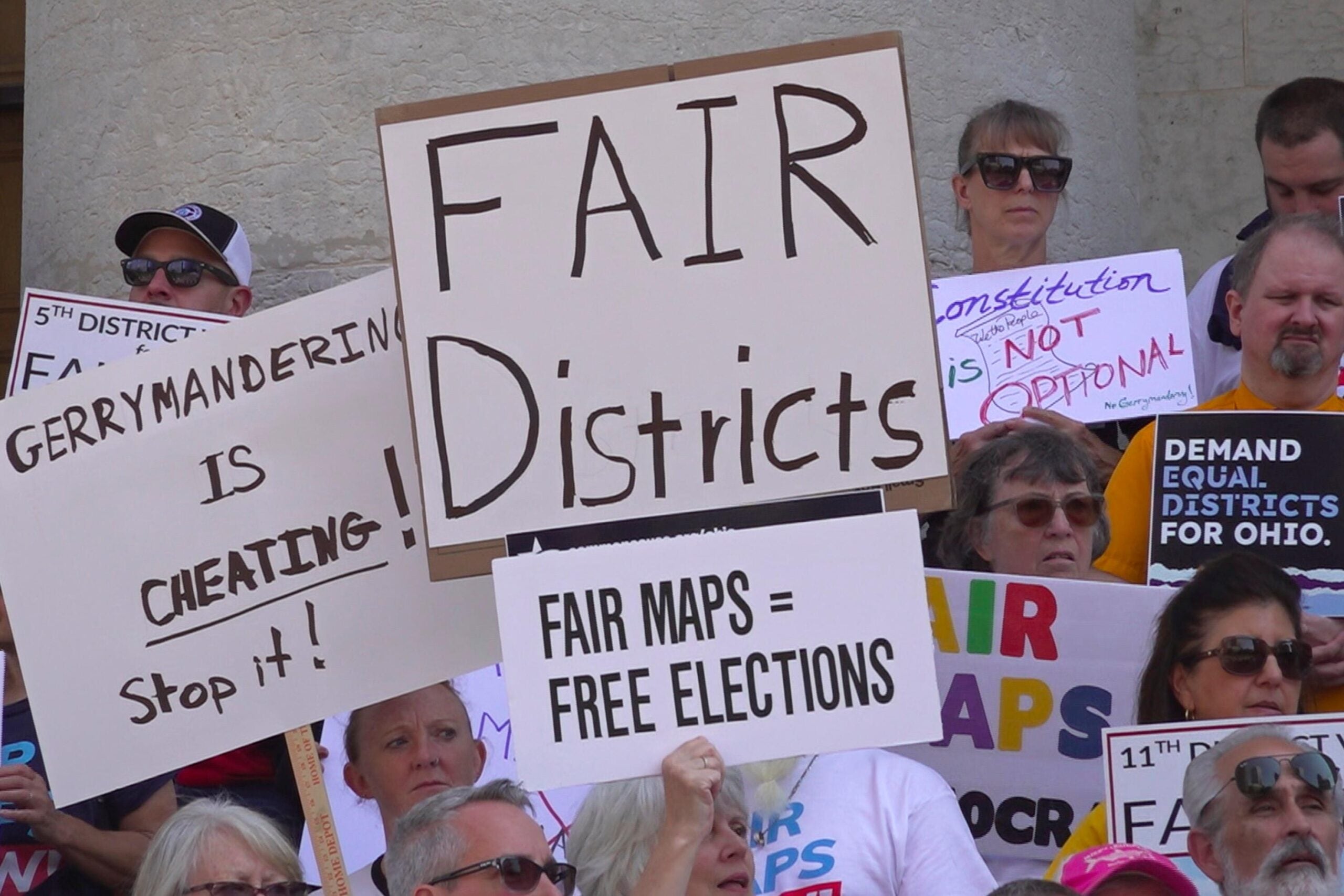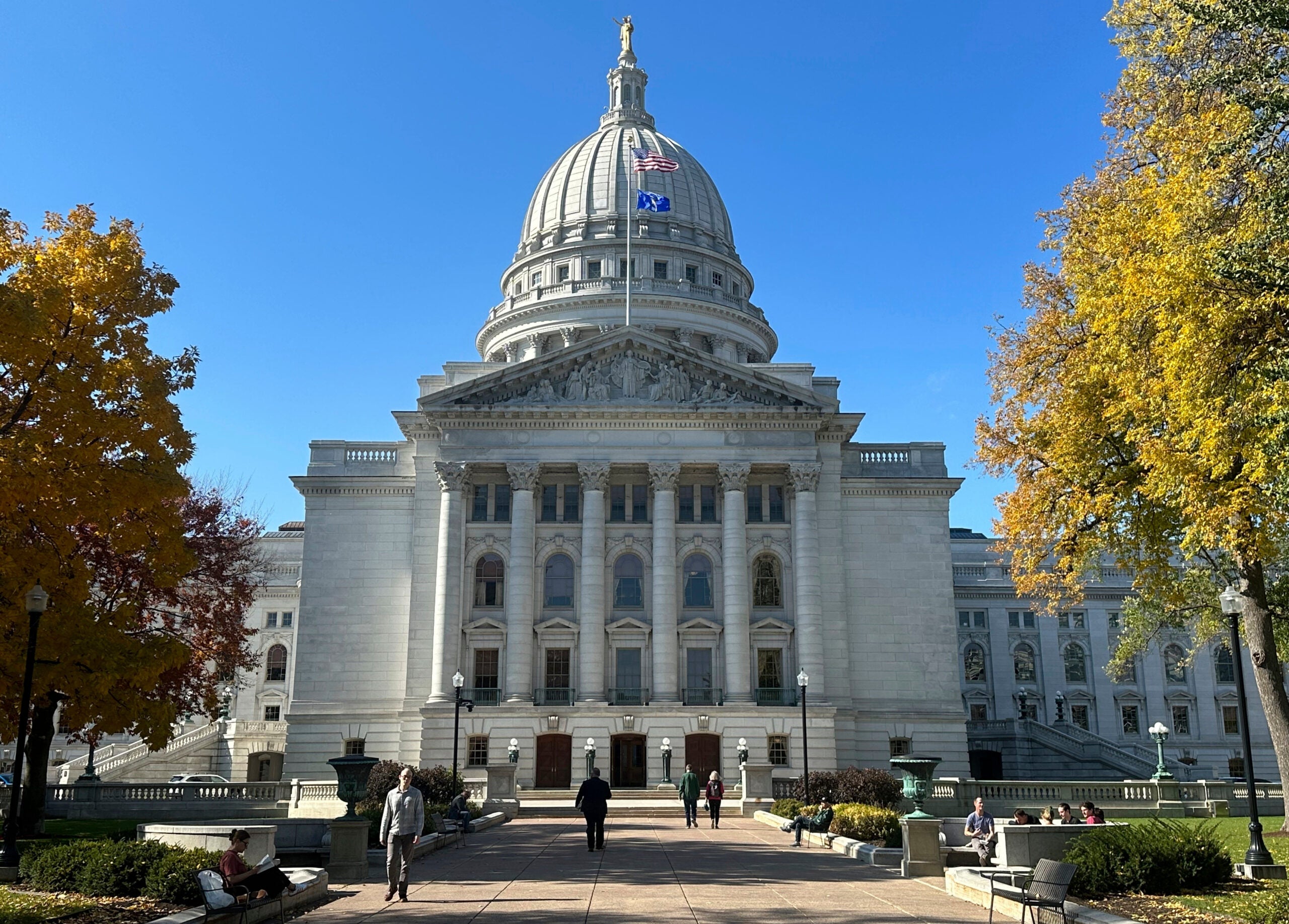Another judge has rejected President Donald Trump’s efforts to reverse Democratic President-elect Joe Biden’s victory in Wisconsin.
The decision by Racine County Reserve Judge Stephen Simanek is not the final say in Trump’s state lawsuit, which Trump’s attorneys appealed directly to the Wisconsin Supreme Court. Justices scheduled oral arguments in the case for noon Saturday.
But the ruling was the latest in a string of losses for Trump in Wisconsin, where official results showed Biden defeated the president by 20,682 votes in the Nov. 3 election.
News with a little more humanity
WPR’s “Wisconsin Today” newsletter keeps you connected to the state you love without feeling overwhelmed. No paywall. No agenda. No corporate filter.
“The bottom line here is that the court should do everything to ensure that the will of the voters prevails,” Simanek said as he ruled from the bench Friday. “The certification of the results of the 2020 Wisconsin presidential election after the Dane County and Milwaukee County recounts is affirmed.”
Trump’s campaign challenged more than 220,000 absentee ballots cast in Dane and Milwaukee counties.
Trump’s lawsuit did not challenge specific votes or allege fraud, which Simanek noted in his ruling.
“There is no credible evidence of any misconduct or a wide scale fraud at issue here,” Simanek said.
Instead, Trump’s lawyers argued clerks in Dane and Milwaukee counties followed bad guidance from the Wisconsin Elections Commission, which ran contrary to state law.
Among the groups of voters challenged by Trump were roughly 170,000 who voted in person before Election Day because they didn’t use the same application as other absentee voters. That policy, which Simanek called a “correct, allowable interpretation,” has been endorsed by state elections officials for the past decade.
The Trump campaign also challenged another 28,000 ballots from voters who said they were “indefinitely confined,” which lets them submit an absentee ballot application without providing a copy of a photo ID. Republicans have said this shows voters were trying to sidestep the state’s voter ID law. Simanek disputed that.
“To infer that people utilized and voted under that section to evade the voter ID requirements is no basis for not counting those votes,” Simanek said. “It’s far more likely because of the ongoing pandemic that people were very concerned, especially those with compromised systems, to go out in public, to not want to stand in line for potentially hours at a polling place in order to cast a ballot.”
“I certainly could not strike those ballots based on an inference,” Simanek continued, “which is not really supported … in fact.”
Simanek also rejected the Trump campaign’s efforts to strike about 5,500 ballots where clerks completed a witness’ address, which is also allowed under Wisconsin Election Commission guidance.
In addition, he rejected the Trump campaign’s efforts to reject about 17,000 ballots collected at “Democracy in the Park” events sponsored by the city of Madison earlier this year. Republicans raised concerns about those events before they were held but never challenged them in court.
Simanek’s ruling was just the latest setback for Trump, who has now lost several cases in Wisconsin’s state and federal court systems.
The Wisconsin Supreme Court rejected the Trump campaign’s initial lawsuit on a 4-3 ruling, with conservative Justice Brian Hagedorn joining the court’s liberals in ruling the case must first be filed in circuit court. Trump’s campaign filed new cases in Dane and Milwaukee County circuit courts after the ruling. Those lawsuits were then combined by Wisconsin Supreme Court Chief Justice Patience Roggensack, who also assigned them to Simanek.
The Supreme Court’s initial ruling on Trump’s lawsuit did not address the merits of the case.
The state Supreme Court also rejected another lawsuit filed by Chippewa Falls attorney Karen Mueller, arguing absentee ballot drop boxes are illegal.
Justices also rejected an additional lawsuit filed by an attorney for the Thomas More Society, a Chicago-based conservative law firm. Hagedorn wrote a scathing decision in that case, calling it “the most dramatic invocation of judicial power I have ever seen.”
Trump’s allies have also lost one case in Wisconsin’s federal court system as Judge Pamela Pepper ruled she lacked the legal standing under the U.S. Constitution to overturn a state’s election results.
Trump himself filed another federal lawsuit, where a judge could issue a decision at any moment.
It’s highly unusual, if not unprecedented, for the Wisconsin Supreme Court to hold arguments on a Saturday, which underscores the time-sensitive nature of this case.
Presidential electors are scheduled to meet to cast their votes Monday.
Wisconsin Public Radio, © Copyright 2026, Board of Regents of the University of Wisconsin System and Wisconsin Educational Communications Board.







